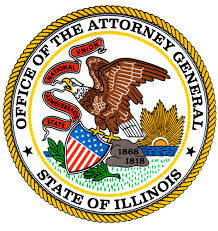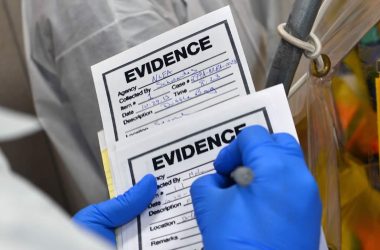
Chicago —(ENEWSPF)—July 11, 2017. Attorney General Lisa Madigan today announced her office issued guidance for law enforcement agencies throughout the state under a new landmark law that was enacted to improve the response to sexual assault and sexual abuse crimes in Illinois. The Comprehensive Guidelines and Sample Policy Language for Law Enforcement Policies on Responding to and Investigating Sexual Assault and Sexual Abuse are now available on the Attorney General’s website, and are part of the new law that requires specialized training and policies for law enforcement to respond to sexual assault crimes.
In 2015, Madigan created the Joint Sexual Assault Working Group with the Cook County State’s Attorney’s Office, the St. Clair County State’s Attorney’s Office and the Illinois Coalition Against Sexual Assault. The Working Group was formed to address the fact that most survivors of sexual assault do not report their crimes to law enforcement authorities. In 2016, the Working Group drafted and worked to pass the Sexual Assault Incident Procedure Act to improve the response of the criminal justice system to survivors of sexual assault.
The Act requires law enforcement in Illinois to adopt evidence-based, trauma-informed policies and requires specialized sexual assault training for first responders and law enforcement authorities. Under the law, every law enforcement agency is required to develop, adopt and implement written policies for incidents of sexual assault or sexual abuse by Jan. 1, 2018. The policies must be consistent with the guidance issued by Madigan’s office in consultation with the Illinois Law Enforcement Training Standards Board and the Illinois State Police.
“We took a comprehensive look at why sexual assault survivors rarely report their crimes to law enforcement, and it was clear that our criminal justice system can and must respond, investigate and better support survivors,” Madigan said. “The new law is intended to encourage more survivors of these devastating crimes to come forward, receive justice and begin the healing process. These comprehensive guidelines will help to ensure law enforcement agencies are responsive to survivors.”
Sheriffs, police chiefs, prosecutors and victim advocates played a critical role in the development of the guidelines and sample policy over the last year.
“We want victims of sexual assault to report the crimes against them and receive the assistance and justice that they deserve, and this law and our working group had them in mind every step of the way,” Ed Wojcicki, executive director of the Illinois Association of Chiefs of Police said. “The Illinois Chiefs were at the table with the Attorney General’s staff, Illinois State Police, advocacy groups and others for more than a year working on these guidelines, and we are grateful to Attorney General Madigan for making the implementation of this new law an outstanding collaborative process.”
The issuance of the Comprehensive Guidelines is the latest step in the implementation of the Sexual Assault Incident Procedure Act, which includes additional significant changes in the handling of sexual assault cases:
- Law enforcement officers are required to complete written reports of every sexual assault complaint, regardless of who is reporting the crime and where it occurred.
- Survivors are able to request updates on the status of the testing of their sexual assault evidence by the state crime lab. Law enforcement agencies are required to respond to status requests unless doing so would compromise or impede an ongoing investigation.
- The time period for survivors to consent to the testing of their sexual assault forensic evidence will be extended from 14 days to five years after the assault. Survivors under the age of 18 at the time of the crime will have five years from their 18th birthday to consent to the testing of the evidence.
In addition to the Comprehensive Guidelines and sample policy language, also available on the Attorney General’s website are victim notice forms in 10 different languages, which law enforcement may use when implementing other requirements of the Act.
Source: www.illinoisattorneygeneral.gov








